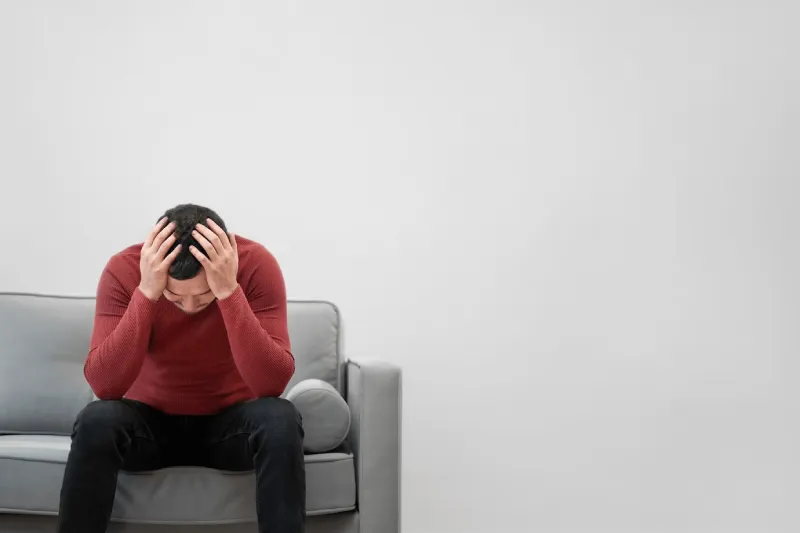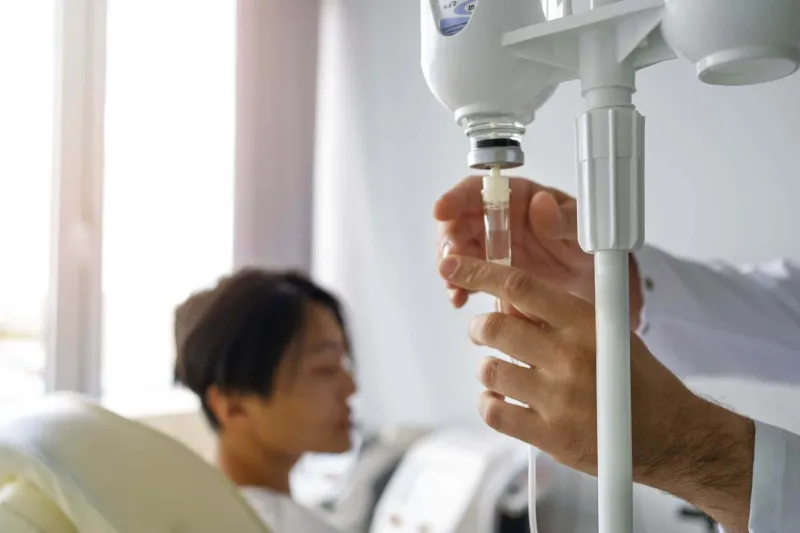
Are you struggling with anxiety and seeking effective treatment options? Understanding the causes and symptoms is crucial in finding what you need to know about anxiety treatment. In this article, we will provide you with evidence-based information on various anxiety treatment methods, including cognitive-behavioral therapy (CBT), other therapeutic approaches, medication, and self-help strategies.
Embarking on the journey to alleviate anxiety requires informed decisions, and we’re here to equip you with the knowledge to make the right choices. Let’s explore the comprehensive realm of anxiety treatment together.
Understanding Anxiety: Causes and Symptoms
Anxiety is indeed a complex emotional response that affects individuals in different ways. The combination of genetic, biochemical, environmental, and psychological factors can contribute to its development. Here’s a bit more information on each aspect:
-
- Genetic Predisposition: Research suggests that genetics can play a part in the development of anxiety disorders. If you have a family history of anxiety or other mental health conditions, you might be at a higher risk of experiencing anxiety yourself.
-
- Brain Chemistry Imbalances: Neurotransmitters are chemical messengers in the brain that play a crucial role in regulating mood and emotions. Dysregulations in neurotransmitters, such as serotonin, dopamine, and norepinephrine, can contribute to developing anxiety disorders.
-
- Traumatic Life Events: Traumatic experiences, such as physical or emotional abuse, accidents, or the loss of a loved one, can induce the onset of anxiety. These events can create heightened arousal and hypervigilance, leading to persistent feelings of anxiety.
-
- Chronic Medical Conditions: Certain medical conditions, such as chronic pain, heart conditions, and respiratory disorders, can exacerbate anxiety symptoms. The stress of navigating a chronic illness can contribute to developing an anxiety disorder.
-
- Medications and Substances: Some medications and substances can lead to or worsen anxiety symptoms. For example, stimulants, caffeine, and certain illicit drugs can increase feelings of restlessness and anxiety.
It’s essential for individuals experiencing anxiety to seek professional help from mental health experts, such as psychologists or psychiatrists. They can provide personalized support on what you need to know about anxiety treatment.
Cognitive-Behavioral Therapy (CBT): A Proven Approach to Anxiety Treatment
CBT has emerged as a highly effective method for treating anxiety disorders. This evidence-based technique identifies and changes negative thought patterns and behaviors contributing to anxiety. Working with a trained therapist teaches individuals coping strategies to manage their anxiety symptoms and regain control over their lives.
In CBT, therapists help clients identify the thoughts and beliefs fueling their anxiety. They then teach them how to challenge these thoughts and alternate them with more realistic and positive ones. This process helps individuals develop a new perspective on their fears, reducing the intensity of their anxiety response. Additionally, CBT incorporates behavioral interventions such as exposure therapy, where clients gradually confront feared situations or triggers in a safe and controlled manner.
Numerous scientific studies support the effectiveness of Cognitive-Behavioral Therapy. Research has consistently shown that CBT can significantly reduce symptoms of various anxiety disorders, including generalized anxiety disorder, panic disorder, interpersonal anxiety disorder, and specific phobias. It empowers individuals to participate in their treatment actively and equips them with valuable skills they can continue using long after therapy.
Exploring Other Therapeutic Approaches for Anxiety
There are several alternative therapeutic approaches for managing anxiety. These practices offer valuable tools for individuals seeking additional support beyond traditional methods. Let’s delve a bit deeper into each of these approaches:
-
- Relaxation Techniques: Deep breathing methods and progressive muscle relaxation are powerful tools to counteract the physical symptoms of anxiety. Deep breathing encourages the body’s relaxation response, which can help regulate heart rate and lower stress hormones. Progressive muscle relaxation includes tensing and relaxing different muscle groups to release tension and foster relaxation.
-
- Meditation: Meditation is a mindfulness approach that focuses on a particular object, thought, or activity to attain mental clarity and relaxation. Mindfulness meditation, in particular, encourages observing thoughts and emotions without judgment, which can help individuals detach from anxious thoughts and reduce overall stress.
-
- Yoga: Yoga combines physical movement, controlled breathing, and mindfulness practices. The combination of gentle physical activity, intentional breathing, and focus on the present moment can help individuals alleviate anxiety. Yoga promotes flexibility, balance, and self-awareness, contributing to emotional well-being.
-
- Mindfulness-Based Stress Reduction (MBSR): This structured program incorporates mindfulness meditation and yoga to support individuals in managing stress, anxiety, and other emotional challenges. MBSR teaches participants to be fully present and non-judgmental, enabling them to navigate their thoughts and emotions better.
-
- Biofeedback: Biofeedback is a technique that aids individuals in gaining awareness and control over physiological functions like heart rate, muscle tightness, and skin temperature. By learning to regulate these functions, individuals can improve their response to stress and anxiety.
When considering these alternative approaches, it’s critical to note that not every method will work equally well for everyone. Finding the right combination of techniques that resonate with an individual’s preferences and needs is key. Moreover, seeking guidance from mental health professionals or trained practitioners in these approaches can provide personalized recommendations on what you need to know about anxiety treatment.
The Role of Medication in Anxiety Treatment

Anxiety treatment options are crucial for individuals with anxiety to have a holistic approach combining therapy, medication, and other alternative treatments. Here’s a bit more detail on what you need to know about anxiety treatment:
- Medication Categories: Antidepressants and benzodiazepines are the primary medications for managing anxiety. Antidepressants, particularly SSRIs, are commonly prescribed for long-term anxiety treatment. They work by raising the availability of serotonin in the brain, which can aid in regulating mood and lower anxiety symptoms. Benzodiazepines, while effective for short-term relief, are generally avoided for long-term use due to the risk of dependence and the potential for abuse.
- Complementary Approach: Medication is most effective in a comprehensive treatment plan that includes therapy and non-pharmacological interventions. Cognitive-behavioral therapy (CBT), exposure therapy, mindfulness techniques, and relaxation strategies are some therapeutic approaches that can provide individuals with tools to manage their anxiety in the long run.
- Holistic Treatment: By combining medication with therapy, individuals can address anxiety’s biological and psychological aspects. Therapy helps individuals comprehend the root causes of their anxiety, learn coping mechanisms, and develop a comprehensive understanding of their emotions and thought patterns. Medication, in turn, can help alleviate the severity of symptoms and create a more stable foundation for engaging in therapy.
- Consulting a Healthcare Professional: Making informed decisions about medication requires consulting with a qualified healthcare provider. Mental health professionals, such as psychiatrists or psychiatric nurse practitioners, are best equipped to assess your condition, recommend appropriate medications, and monitor your progress. Before making treatment recommendations, they consider your medical history, current symptoms, potential interactions with other medications, and personal preferences.
- Personalized Treatment: Each individual’s experience with anxiety is unique, so the treatment plan should be tailored to their specific needs. What works for one person might not work for another, which is why a collaborative approach with a mental health professional is so important. Together, you can determine the most suitable treatment strategy based on your situation.
Overall, medication can be a valuable tool in managing anxiety, primarily when used in conjunction with therapy and other holistic treatments. Remember that working closely with a mental health professional is crucial to developing a comprehensive and personalized treatment plan that recognizes your needs and circumstances.
Self-Help Strategies for Managing Anxiety
Managing anxiety through self-help strategies is an essential aspect of maintaining mental well-being. In addition to relaxation techniques and mindfulness exercises, several other methods can be effective in managing anxiety:
-
- Physical Activity: Routine exercise can have a positive change on anxiety. Engaging in physical tasks you enjoy, such as walking, jogging, dancing, or swimming, can help reduce stress and elevate mood by releasing endorphins, the body’s natural feel-good chemicals.
-
- Healthy Lifestyle Choices: A balanced diet, adequate sleep, and minimizing caffeine and alcohol intake can reduce anxiety. These factors play a crucial role in regulating mood and overall mental health.
-
- Time Management: Organizing your tasks and setting priorities can help lower feelings of overwhelm and anxiety. Break down larger tasks into smaller, manageable stages and set realistic goals for yourself.
-
- Social Support: Connecting with friends, family, or support groups can give you an outlet for sharing your feelings and concerns. Talking about your anxiety with others can help alleviate its emotional burden.
-
- Limiting Media Exposure: Constant exposure to negative news and social media can increase anxiety. Consider limiting your media consumption and focusing on positive or uplifting content.
Remember that everyone’s journey to handling anxiety is unique. Trying different strategies and selecting the ones that work best for you is crucial. If your anxiety becomes overwhelming or significantly impacts your daily life, obtaining professional help from a therapist or counselor is advisable. They can give personalized guidance and support tailored to your specific needs.
The Bottom Line
Grasping the essentials of anxiety treatment is vital for effective management. Cognitive-Behavioral Therapy (CBT) stands out as a proven method of reshaping negative thoughts and behaviors. Alternative therapies also cater to individual needs. The medication aids in severe cases under professional guidance. Self-help tactics, including relaxation methods, exercise, and stress control, are valuable for daily anxiety management. Understanding what you need to know about anxiety treatment empowers effective coping.
If you’re looking for expert guidance in managing anxiety and improving your well-being, contact us at Sunshine Infusion today. Our professional team is here to support you on your journey to achieve a healthier and happier life.




